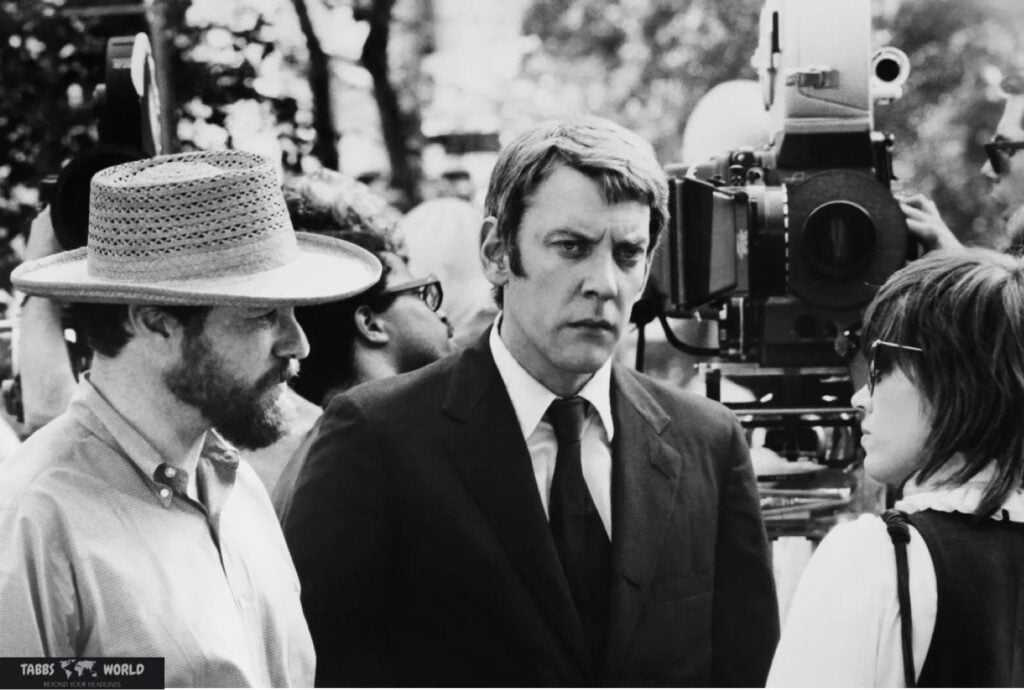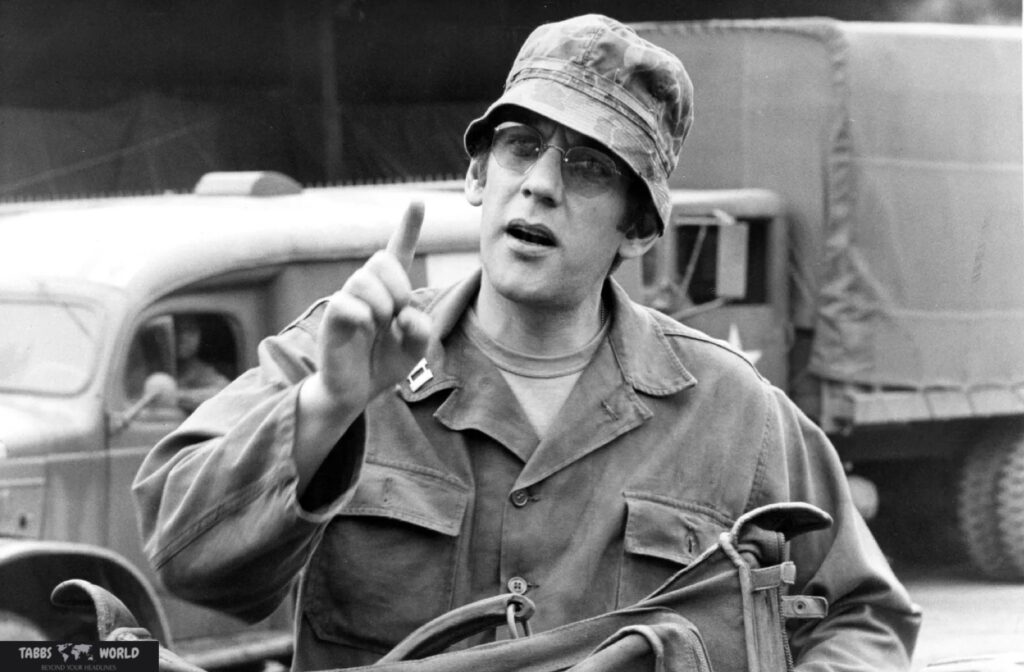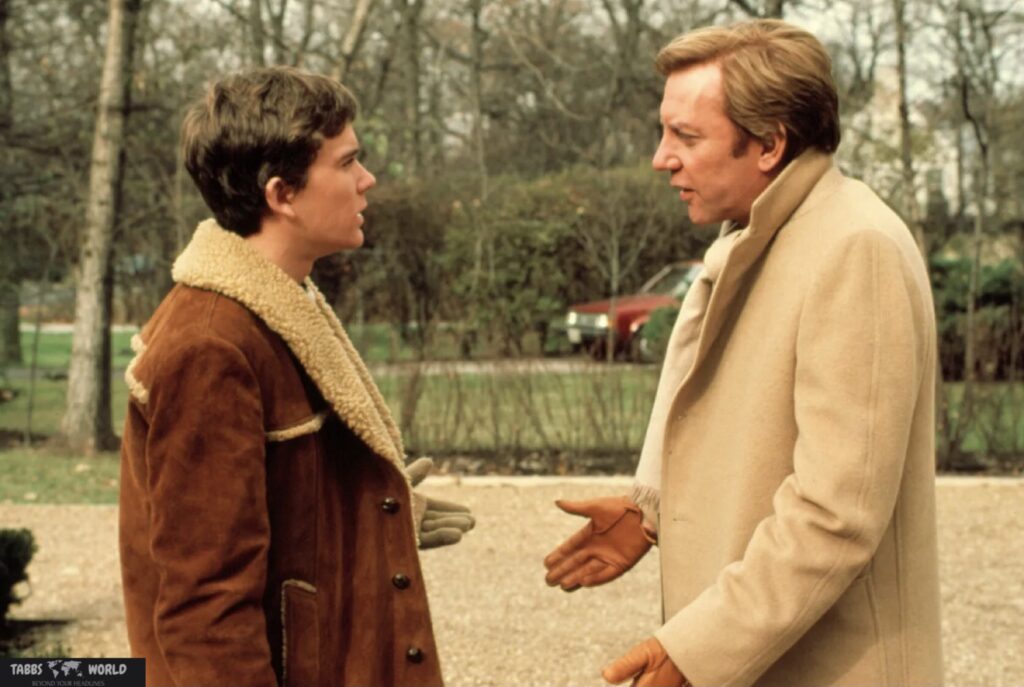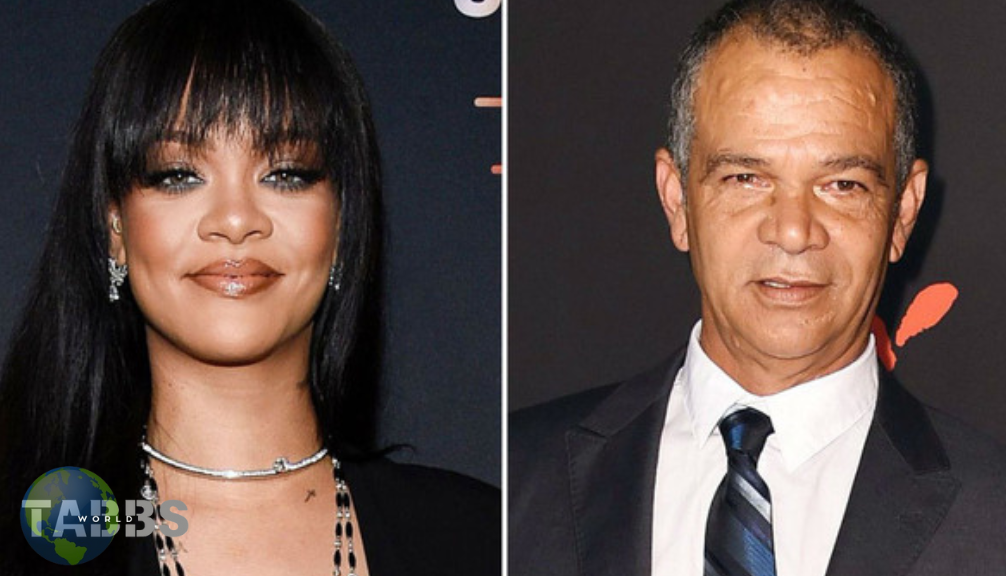How do you know you’re dealing with one of the all-time great actors?
When they die, you don’t know where to start.
So I repeat what Donald Sutherland’s son Kiefer said today when announcing his father’s death at age 88: “I personally think he’s one of the most important actors in film history. were.” Despite the first-person qualifier, this is as close to a statement of fact as you’ll get. Few actors were in artistically significant films their entire lives, decades later, or were integral to the medium’s success and longevity. Few actors committed themselves as ferociously to making every role, big or small, a labor of love or labor for hire. Very few actors were a lot of fun to watch.
Donald Sutherland was great and beloved. Talk to anyone who loves acting and ask them to name their favorite work by the man, and they’ll need a minute to think about it and change their mind over and over again. His performances in Ordinary People, Don’t Look Now, Clute, Six Degrees of Separation, 1978’s Invasion of Body Saturdays, The Dirty Dozen, and MAS*H are so perfect and true that if any other actor has was Even if one of them did, he would be typecast as a character for the rest of his life. Instead, those parts were solitary, unique, and separate from every other Sutherland character.
He clearly loved challenging, possibly alien roles, especially in obsessive auteur projects that featured Ahab’s voice, such as Fellini’s Casanova, 1900, and A Dry White Season. But he could also crush roles that seemed standard issue on paper, like the brutally ruthless President Snow in the Hunger Games movies (which could prove to be a “gateway drug” for future Sutherland completers). , as the Star Wars and Lord of the Rings films were a way for people to learn about Christopher Lee).In Sutherland’s seventies and eighties, he continued to do richly detailed, often revealing work, whether he was playing a senior citizen with Alzheimer’s in The Laser Seeker or J. Paul Getty, a miserly monster in the FX series Trust. who refused to pay his grandson. The kidnappers demanded a ransom unless they sent him the severed ear.
At one moment Sutherland’s instincts for being most honest were so deep that he could even take an old Hollywood chestnut as the “hard-ass coach who only wants the best from his athlete and secretly loves him like a son.” does” and opened it. In a way that can turn even the most jaded moviegoer into a whining wreck. It was Without Limits, whose funeral scene is in the sports movie Tear Gas Hall of Fame, with Gary Cooper as Lou Gehrig in The Pride of the Yankees telling the crowd that he was the luckiest man on the face of the earth. When Sutherland gets up to the mourners, you feel like you’re not watching a sports drama with archetypal characters, but a video of an ordinary man asked to speak at a memorial service. Her performance as two grieving parents in Ordinary People and Nicolas Roeg’s nonlinear horror drama Don’t Love Now takes the audience to the heart of that particular kind of pain, characterized by traumatized indifference and indifference. There is a collection. Familiar comforts: a chance to cheer for the home team at a high school swim meet, a super-quiet family dinner that ignores the fact that no one is there, an anxious and needy endeavor.
On the set of Klute, with director Alan J. Pakula and Jane Fonda.

Donald Sutherland In Robert Altman’s M*A*S*H

With Timothy Hutton in Ordinary People.

He seemed special from the moment he broke out in the late 1960s. After several years of paying his dues on stage and TV in Canada, he starred in counterculture war films, including The Dirty Dozen, Kelly’s Heroes and MAS*H. Then he went on to Klute, Don’t Look Now, Steelyard Blues, Casanova, and the 1978 remake of Invasion of the Body Snatchers (the point of one of the single greatest pictures in horror film history: Sutherland points and screams, now An indispensable memory). Starting in that decade and continuing throughout his life, Sutherland cemented his status as one of those actors you were always happy to see, especially when you didn’t know he was. It is also in a movie.
He was a bohemian, authoritarian leftist who made FTW, an anti-Vietnam War documentary with Jane Fonda, and was put on a CIA watch list for his political activities. He never quite let go of the community-minded, mustachioed brother-Tom Baker-in-the-Doctor. which are visible. In a 2017 profile on 60 Minutes, he said he gave his first film audition because, according to the producers, the part was “for a guy next door, and to be completely honest, we’re not like that.” Do you think you ever live with someone? Sutherland was instead playing oddballs at home, such as the anachronistic proto-flower child in the World War II film Kelly’s Heroes, the Hannibal Lecter-ish arsonist in Backdraft, or the preening reverend in Little Murders who married a simple man. turns into an event. A navel-gazing monologue that’s the pre-internet version of a TED Talk. (The latter two roles are examples of Sutherland’s specialty: the high-impact cameo that puts an entire film in an actor’s back pocket. The prime example is his 16-minute appearance as Mr. X in JFK is the shape, an informant who plots for Kevin Costner’s creepy hero, culminating in a sneer, “The truth is with you,Bubba!”).
You could also make a case for Sutherland as a prime example of a legendary actor who embraces creepy, off-brand minor roles in franchise films, or big roles that others would consider fattening a savings account. Present, then do so with them. Integrity that you’d think he walked onto the set thinking it would be the last part he’d ever play. In addition to his short-lived deeply affecting work in JFK, Backdraft, and Little Murders, consider his slapstick performance in the trailer for a nonexistent disaster movie called That’s Armageddon, in just one shot of The Kentucky Fried Movie. his silent, fully physical performance as tormented psychologist and weather machine technologist Will Helm Reich in the music video for Kate Bush’s “Cloud Busting”; Or for that matter, his voice role on The Simpsons as Hollis Hurlbut, head of the Springfield Historical Society, in “Lisa the Iconoclast,” in which he takes on what would otherwise be a historian. I Could Be a Mildly Ironic Legend turns it into a quietly heartbreaking story of a man who processes the revelation that he built his professional identity on a lie, then moves on. . Even Sutherland’s voice-overs for the product were a masterclass in believable fiction. A 2008 advertisement for Simply Orange Orange Juice becomes the pitchman version of Sonnet.
He was personally responsible for one of the most piercing scenes in Ordinary People, where Mary Tyler Moore’s icy, numb Beth comes downstairs in the middle of the night to find her husband, Calvin, sitting at the dinner table. is, where he confesses, “I don’t know if I love you.” Sutherland originally played the scene with Calvin breaking down in sobs. A few days later, they watched Rush, and Sutherland asked if they could reshoot the scene because he was worried he would “screw it up” by showing too much emotion.Redford said no, then changed his mind three months after production wrapped. By this time, they couldn’t get the cinematographer, John Bailey, and Moore was far from making a play. “He told me he could get Robert Surtees [who shot The Graduate] to film and while he didn’t have a set, he did have curtains and a window. ‘I want Mary’s. Have to play the role … would you mind doing it again?’ So we reshot it with me working opposite Bob Redford.
He was, quite simply, one of the best people ever to do it. But at the same time, paradoxically, he was one of the least widely recognized for his enduring greatness, at least by the Academy of Motion Picture Arts and Sciences, which awards the Oscars. Sutherland finally received an honorary lifetime achievement statuette in 2017, 55 years after her acting career, having never been nominated in a regular competition. Why? Maybe it was because Sutherland had an uncanny ability to be brash or aggressive and otherwise make the audience feel like they were in the presence of a real and sensational leading man—a movie star of some sort. while at the same time assuring you that you’re just watching. A boy’s unblemished record of doing what that particular man is sure to do.
Often Sutherland was as good as any other actor nominated for an Oscar in the same film, and Joe would not have been nominated without Sutherland’s strong support. Consider Ordinary People, Best Picture winner for 1980. It received six nominations, including best picture and director (Robert Redford), best adapted screenplay (Alvin Sargent), best actress for Mary Tyler Moore, and best supporting actor for Timothy Hutton and both. Judd Hirsch (Hutton won). Nothing for Sutherland. On Entertainment Weekly’s list of the 25 worst Oscar snubs for acting, it came in at number 15. You can call it blatant injustice. Or you could say that Sutherland’s greatest reward was knowing how exceptional he was all the way through, so good that people complained about his non-nomination for the rest of his life (and beyond). Will continue to do.
In some years, his non-nominated performances were as good or better than those that won. One film I would put in this category is Six Degrees of Separation, Australian director Fred Shepsey’s brilliant, non-linear adaptation of John Guare’s 1993 play, in which Sutherland and Stockard Channing play hotshot art dealer Paul Kittridge and his ‘s socialite wife Ouisa, and played by Will Smith. as Paul, a brilliant, sincere, secretly gay stalker who charms his way into the Kittridges’ townhouse; Channing was nominated for Best Actress, but it was Sutherland whose husband (again!) held the film aloft like a tweedy atlas, reveling in monologues about art and an acknowledgment of vulgarity and emptiness. Heartbreaking. Here, as in many of Sutherland’s other classic performances, he surprises you with information that, in retrospect, you might have seen coming, such as when Paul and Ouisa quietly and unreservedly make out during an important dinner. They begin to more subtly air their core conflicts. The film cuts to the couple fighting outside in the yard, and when Paul realizes his voice has risen to an embarrassing level, he falls silent. He gives Oisa a look that gives you a reflexive apology, then says in a startled, cold, guitar voice, “I’m a gambler.”
Sutherland was also, it must be said, sexy as hell, in her “What, really? That?” So many famous men of the 70s were hot. He told an interviewer that when he was a boy, he asked his mother, “Am I pretty?” He looked at her for a while “…and finally said, ‘Your face has got character.’ I was in depression for a year.” Not enough moviegoers disagree, making Sutherland one of the biggest oddball leading man crushes in cinema. It wasn’t just Sutherland’s tall, lean frame, great energy and convincing performances as smart boys that made him attractive. (Remember his kaddish professor in Animal House?) It was the way he saw his leading ladies: glamorous, monstrous. Sometimes it seemed like she played flirtatious stuff even when the part wasn’t necessarily written that way. Sutherland’s leading characters often have an aspect of “is she or isn’t she” (ie: in love). In Philip Kaufman’s 1978 remake of Invasion of the Body Snatchers, he plays a San Francisco health inspector named Matthew who lures his unhappily married co-worker Elizabeth (Brooke Adams) into a sci-fi conspiracy. Early in the film, there are a couple of scenes that almost make you think you’re watching these two characters in a regular romantic comedy. Adams and Sutherland convincingly play their roles as people who, deep down, are in love but don’t know what’s going on. Sutherland enhances this sensibility by playing each scene as physically close to Adams as he can get without invading her space. He continues to do small physical things that read as auditioning boyfriend behavior but are in a way deniable, such as giving Beth a bottle of what he found in a restaurant stew containing rat turds. (the film’s version of a gentleman giving flowers to a lady) and then, after he reclaims it, gently holds her hand for a second, smiling as he talks to her.
Sutherland was an icon who didn’t declare himself as such – as distinctive as any actor that people try to imitate, but impossible to imitate because everything about him is spontaneous. And seemed authentic, from her looks to her energy and presentation. It’s impossible to read Donald Sutherland’s quotes without hearing his honeyed bourbon voice. It’s impossible to watch videos of him talking about his craft without waiting for the inevitable moment when he takes the piss out of a deep question with a joke (when critic Mark Cousins called it a cross between him and Julie Christie in Dawn showed the famous sex scene. t Now and asked if he “looked back” nostalgically while watching it, he replied that his first thought was, “Oh, the wig looks good”). You can’t look at any picture of Sutherland from any stage of her career without thinking of the striking beauty she possessed, with those troubled eyes of the French philosopher, that sharp, narrow face, so held her own, given the way polio ravaged her body as a child, and the bold, perhaps reckless grooming choices that marked her in the 1970s and that she would later in life I also continued to embrace, when he cultivated the professor-emeritus-of-web of painting , shoulder-length hair brushed back and tucked behind his ears. He was so completely himself off-screen that you felt like you knew him, and so unpredictable on-screen that you never guessed where he was going.



